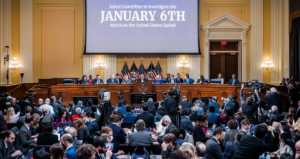Understanding the Implications of Presidential Pardons: A Deep Dive into Constitutionality and Accountability
At Extreme Investor Network, we believe that understanding the legal and economic frameworks of our government is not just a matter of theoretical interest—it’s crucial for informed citizenship. Recently, discussions have emerged around the constitutionality of certain pardons issued by President Biden, raising significant questions about legal precedents, accountability, and the very nature of justice.
The Pardon Dilemma
The term "pardon" resonates deeply within the realms of law and public policy, as it holds immense power. However, the uproar surrounding President Biden’s pardons—particularly those viewed as preemptive—deserves thorough examination. A reader recently posed a compelling question, seeking clarity on the constitutionality of these actions. It’s essential to understand the precedent established by the Burdick v. United States case (1915), which reinforces the necessity of acceptance in the pardon process.
In Burdick, the Supreme Court ruled that a pardon must be accepted by the individual for it to be valid. Simply put, the act of pardoning is intertwined with the concept of guilt and acceptance of that guilt. A pardon implies a confession, lending it a weight that mere amnesty does not carry. This distinction is critical and suggests that every individual pardoned by Biden, in this light, acknowledges guilt in committing high crimes or misdemeanors.
The Question of Preemptive Pardons
The legality of preemptive pardons has been questioned extensively. While former President Ford issued a pardon to Richard Nixon post-Watergate, the constitutionality of such action remains murky. Many experts argue that preemptive pardons may not only lack legal backing but also risk eroding the integrity of the judicial system. This underscores a central issue: can the president legitimately extend a pardon without a formal conviction?
This question ties into broader concerns about accountability, particularly within political circles. If an individual can evade the repercussions of their actions through a presidential pardon, what does that say about the principles of justice that underpin our democracy?
Comparing Pardons and Amnesty
Understanding the distinctions between a pardon and amnesty is crucial in this discourse. Where a pardon absolves an individual of guilt and remits punishment, amnesty tends to overlook offenses committed against the state. This means that while President Biden may have intended to grant reprieve, his actions could blur lines between judicial responsibility and political maneuvering.
The notion that certain pardons could be interpreted as admissions of guilt raises serious questions about the motivations behind them. With a slew of high-profile individuals connected to significant political events, the implications carry not only legal weight but also socio-political consequences.
The Broader Implications for Governance
The pardoning powers exercised by the president have long been a contentious issue, particularly when intertwined with matters of political corruption or abuse of power. The January 6th Commission, which investigated actions related to the Capitol riots, has been scrutinized for perceived biases and alleged cover-ups. As citizens, it’s our responsibility to ensure transparency and accountability in our political system.
The call for trials and accountability is not merely a reactionary stance; it’s a demand for the upholding of constitutional values. As we navigate through these complex issues, we must ask ourselves: Are we willing to accept a system where the powerful can manipulate justice for personal or political gain?
The Future of Accountability
At Extreme Investor Network, we advocate for a nuanced understanding of these pivotal moments in our legal landscape. We believe that discussions about constitutional rights, the nature of pardoning power, and accountability are paramount in our quest for a just society.
The conversation around Biden’s pardons and the actions of the January 6th Committee is not a simple dichotomy of political left versus right. It embodies a larger struggle for the integrity of our democratic institutions—a reminder that the principles of democracy must be upheld for the benefit of all citizens.
Conclusion
The complexities surrounding presidential pardons, especially those viewed as preemptive, call for an urgent reassessment of legal standards and ethical governance. We must engage in thorough dialogue, ensuring that every citizen not only understands their rights but also exercises them. In doing so, we strengthen our commitment to a system rooted in justice, accountability, and democracy. Join us at Extreme Investor Network as we continue to unpack these essential topics, foster insightful discussions, and take steps toward a more informed and equitable society.

